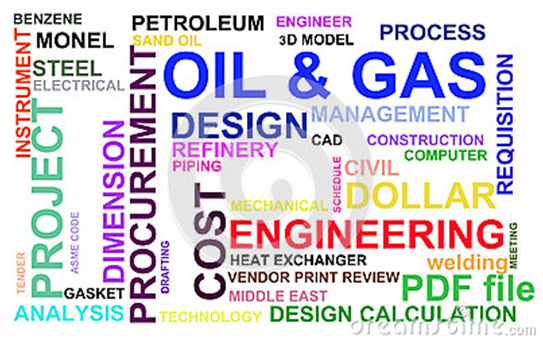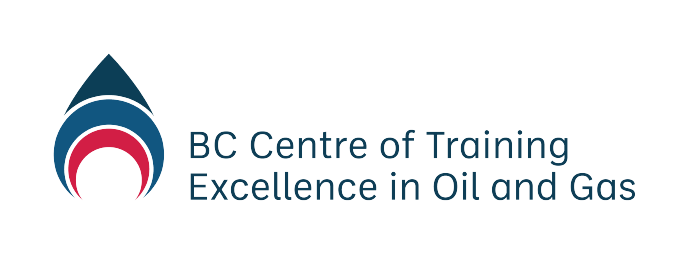-
Module 2.0 How to be Successful in this Course
-
Module 2.1 Introduction to Natural Gas
-
Module 2.2 The Natural Gas Industry in British Columbia
- Overview
- Learning Outcomes
- Natural Gas Science – The Simple Version
- Natural Gas Science – Chemistry
- Natural Gas Science – Physics
- Natural Gas Science – Units of Measurement
- Natural Gas Science – Geology
- Natural Gas Resources and Uses
- Oversight of the Natural Gas Industry
- Understanding Land Rights and Natural Gas
- Energy and the Future
-
Module 2.3 Upstream – Well Site Selection, Preparation and Drilling, Completion, Production, Water Recycling, and Reclamation
- Learning Outcomes
- The Upstream Sector – Extraction and Processing
- The Upstream Sector – Exploration and Site Selection
- The Upstream Sector – Preparation and Drilling
- The Upstream Sector – Completion
- The Upstream Sector – Production
- The Upstream Sector – Water Recycling
- The Upstream Sector – Reclamation
- Upstream Companies and Jobs in British Columbia – Companies
- Upstream Companies and Jobs in British Columbia – Industry Associations
- Upstream Companies and Jobs in British Columbia – Professional Associations
- New Vocabulary
-
Module 2.4 Midstream – Transportation, Processing, Refining
- Learning Outcomes
- The Midstream Sector
- The Midstream Sector – Processing Natural Gas
- The Midstream Sector – Liquefied Natural Gas
- The Midstream Sector – An Emerging Industry
- The Midstream Sector – Processing LNG
- The Midstream Sector – Proposed LNG Projects in British Columbia
- Transportation
- Midstream Companies and Jobs in British Columbia
-
Module 2.5 Downstream – Refining and Markets
-
Module 2.6 Health and Wellness in the Natural Gas Industry
-
Module 2.7 Safety
-
Module 2.8 Terminology and Communication
-
Module 2.9 Jobs and Careers
- Learning Outcomes
- Industry Outlook
- Technology is Changing Workforce and Skills
- Employment in the Natural Gas Industry
- Employment in the Natural Gas Industry – Types of Employment
- Employment in the Natural Gas Industry – Range of Jobs
- Employment in the Natural Gas Industry – High Demand Jobs and Occupations
- Occupational Education and Training
-
Module 3.0 How to be a Valued Employee
-
Module 3.1 Identifying Interests and Skills
-
Module 3.2 Looking for Employment in Natural Gas
-
Module 3.3 Applying for Employment in Natural Gas

Every business and industry have unique words or uses words in a way that are unique to it. For example, in the fashion industry a “model” is a person who wears clothes to display them in magazines, commercials or fashion shows. In architecture a “model” is a miniature version of a building; in the automotive industry it is a specific type and make of vehicle.
The oil and gas industry is no different. It has words like “coke,” “upgrading,” “char,” and “transformers.” These do not mean “Coca-Cola,” a “new cell phone,” a “northern fish species,” or “alien toy robots” respectively. In order to be successful working in any industry, you need a basic understanding of the words being used or the “terminology”.
You’ve already learned some specific natural gas terminology like “upstream”, “midstream” and “downstream”, but in order to work in the industry, the more terminology you can master early on, the better.
Learning terminology can be tedious. The following activities will hopefully make it a little more entertaining and therefore easier to learn and remember.
Learning Activity 1: Energy IQ Glossary of Oil and Gas Terms
https://energyiq.canadiangeographic.ca/main/glossary
Instructions
- Follow the link above to the Energy IQ Glossary where you will find a list of words and phrases that are common in both the oil and gas industries.
- You will be assigned one word from each column, for a total of three words.
a) Click on each word to see its meaning
b) Write down the meaning of each word on a piece of paper. - Your instructor may provide you with links to other glossaries for the industry. Check out the other glossaries. Some provide more detailed or technical definitions and/or definitions for other words.
- After everyone has finished, each student will be asked to read their words and meanings to the class.
- Revisit the Energy IQ Glossary, or any of the glossaries provided to you by the instructor,whenever you come across an unfamiliar word.

Learning Activity 2: Oil and Gas Word Search
Instructions
- Working with a partner, find the hidden words in Figure 1 , Oil and Gas Word Search. Words can be written horizontally, vertically, or diagonally. Some may even be written backwards!
- After you have found all the words, work with your partner to find the definition for each word and write it in the space provided. Use the Energy IQ Glossary from Learning Activity 1, and any other glossaries given to you by the instructor.
- As a class, discuss any words that you are unable to define or are still uncertain about.
Figure 1: Oil and Gas Word Search

Barrel_____________________________________
Casing____________________________________
Christmas tree ____________________________
Crude oil _________________________________
Derrick____________________________________
Drill Bit _________________________________
Fishing____________________________________
Liquefied gas _____________________________
Mineral owner _____________________________
Natural gas _______________________________
Oil field _________________________________
Operator___________________________________
Payzone____________________________________
Petroleum__________________________________
Pipeline___________________________________
Production_________________________________
Refinery __________________________________
Roughneck__________________________________
Roustabout ________________________________
Spudding___________________________________
Surface owner _____________________________
Toolpusher_________________________________
Well_______________________________________
Wildcat____________________________________
Learning Activity 3: Word Association
This activity uses the Energy IQ Glossary from Learning Activity 1 and the words found in the word search from Learning Activity 2.
Some of the words in the Energy IQ Glossary and the word search are awfully long, and it would be impossible to remember them all after just one class. There are tools and tricks that experts use to begin to remember long lists of words like these.
One way to remember new words is to associate or connect them to words you already know. The more associations or connections you can make, the better.

Here’s an example:
GARGANTUAN, meaning exceptionally large.
Associations:
Use it in a sequence of words e.g., small, medium, large, exceptionally large, GARGANTUAN.
Make a list of things that are GARGANTUAN e.g., a blue whale, a mammoth, Godzilla.
Visualize it in a scary way e.g., “That GARGANTUAN creature is going to rip me apart and then eat me!”
Now you try.
Instructions
- Select a word from either the Energy IQ Glossary or the Oil and Gas Word Puzzle.
- Say the word aloud to activate your auditory (hearing) memory.
- Think of all the words that you know that are associated with or connect to the word. Associations and connections should suit the meaning of the word as it relates to the natural gas industry.
a) Some great choices of words to try it out with are:
- Spudding
- Royalty
- Transformer
- Repeat the process until you have exhausted the list of words you were having trouble remembering
